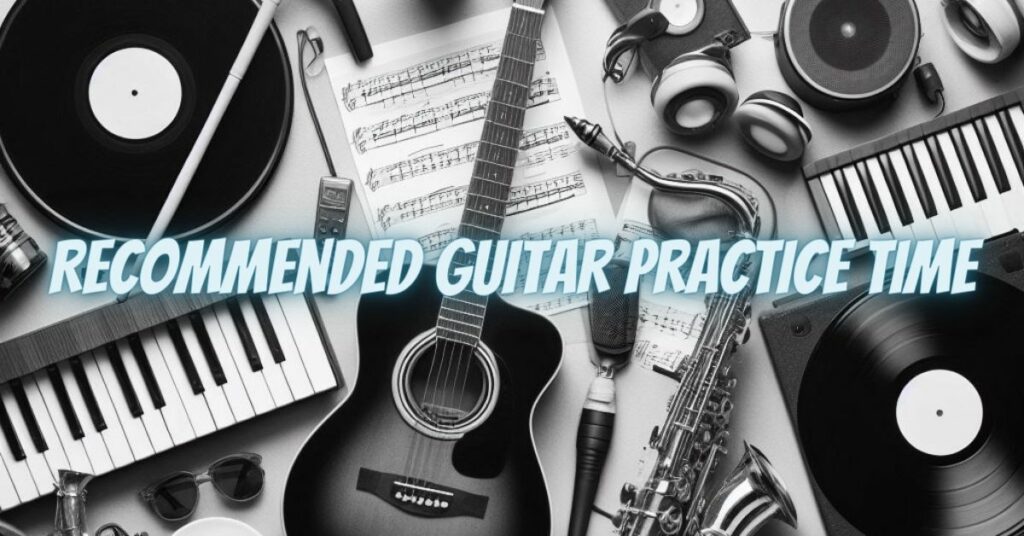Guitar playing is a rewarding and creative pursuit that can bring immense joy and satisfaction. Whether you’re a beginner learning the basics or an advanced guitarist honing your skills, it’s essential to strike a balance between practice and rest to ensure consistent progress and prevent overuse injuries. In this article, we’ll explore the factors to consider when determining how many hours you can play guitar in a day.
The Importance of Guitar Practice
Regular practice is fundamental for becoming a skilled guitarist. It helps you develop muscle memory, refine technique, and enhance your understanding of music theory. However, excessive practice can lead to fatigue, frustration, and even physical problems such as hand and wrist strain.
Factors to Consider
- Skill Level
Your skill level plays a significant role in how long you can practice effectively. Beginners may find that shorter, focused practice sessions are sufficient, while advanced players often practice for more extended periods.
- Goals
Your musical goals and objectives influence the amount of time you should dedicate to practicing. If you’re aiming to play professionally or master complex pieces, you may need to practice for several hours each day. For those playing for personal enjoyment or to unwind, shorter practice sessions can suffice.
- Focus and Concentration
The quality of your practice matters as much as the quantity. Focused, concentrated practice is more productive than distracted, half-hearted playing. Shorter, intense practice sessions can be incredibly effective.
- Physical Limitations
Your physical condition, especially in your fingers, wrists, and forearms, plays a role in determining how many hours you can play guitar each day. It’s essential to listen to your body and avoid overuse injuries.
- Rest and Recovery
Rest is critical for preventing burnout and allowing your muscles and mind to recover. Adequate sleep and breaks during practice sessions are crucial for maintaining long-term progress and avoiding injury.
Tips for Effective Guitar Practice
- Establish a Practice Routine: Create a practice routine that aligns with your goals and skill level. This routine should include a mix of technical exercises, learning new material, and revisiting old ones.
- Set Realistic Goals: Break down your musical objectives into manageable, achievable goals. This makes it easier to track your progress and stay motivated.
- Stay Hydrated and Eat Well: Proper hydration and a balanced diet can improve your overall physical condition, helping you practice for longer periods without fatigue.
- Warm-Up and Stretch: Begin your practice sessions with warm-up exercises and stretch your hands, fingers, and wrists to prevent strain and injury.
- Take Breaks: Avoid extended, continuous practice without breaks. Short, frequent breaks help maintain your focus and prevent physical strain.
- Listen to Your Body: If you experience pain or discomfort during practice, stop immediately and rest. Over time, you can develop more endurance, but it’s crucial not to push your body too hard.
The ideal number of hours you can play guitar in a day varies from person to person, depending on skill level, goals, focus, physical condition, and more. It’s crucial to find a balance that allows you to progress while avoiding burnout and injury. Ultimately, the quality of your practice, rather than its quantity, is what will lead to musical growth and fulfillment as a guitarist. Remember that enjoying your playing and maintaining a healthy relationship with your instrument is just as important as mastering it.


